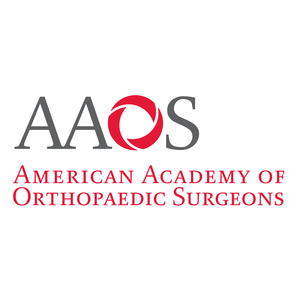X. Sherry Liu, Ph.D., receives Kappa Delta Young Investigator Award
LAS VEGAS, March 14, 2019 /PRNewswire/ -- X. Sherry Liu, Ph.D., was presented with the Kappa Delta Young Investigator Award at the 2019 Annual Meeting of the American Academy of Orthopaedic Surgeons (AAOS) for her research into how a woman's reproductive history is a key factor for osteoporosis and fracture risk due to estrogen deficiency. The Kappa Delta Awards recognize scientists whose research in musculoskeletal disease or injury have led to advancement in patient treatment and care.
Reproduction and menopause are two physiological events that cause alterations to the female skeleton due to rapid estrogen withdrawal. On average, the female skeleton loses five to 10 percent of their bone mineral density during pregnancy and lactation. The reproductive process requires substantial quantities of calcium for both the growing fetus, which needs 60 to 350 mg of calcium per day (depending on the gestational stage), and the breastfeeding infant who needs an average of 200 mg per day to support healthy bone growth. The female body is able to meet the increased calcium demand through several mechanisms, one of which is skeletal resorption.
To learn more about the short and long-term effects on bone structure in women who reproduce and lactate, and those who don't, Dr. Liu and her team studied rats to observe their hormone changes and how their bone structure responds to estrogen deficiency during reproduction and post menopause.
Initially, the research showed that after two to three reproductive cycles in rats, the trabecular bone (spongy substance inside the bone) and the cortical bone cannot repair itself back to those of virgin rats. However, the bones of reproductive rats undergo a transformation post weaning as the cortical bone (hard outside surface) becomes stronger to compensate for the loss of the trabecular bone, reducing fracture risk.
"The human body is very smart," said Dr. Liu. "When there is a huge demand of calcium, the fastest and most efficient way to get it is by resorption, and we found that the bones of reproductive rats prepare for this by shifting its structure to overcome weakness."
While women who reproduce and lactate experience initial loss in bone structure, there are long-term benefits after menopause. Dr. Liu's research showed that under a simulated post-menopausal condition (equivalent to 10 years post menopause in human), the reproductive rats had stronger bone structure than the virgin rats and they maintain their bone health more efficiently by load-bearing activities such as resistance and weight training.
"Our hope is that this research leads to a deeper biological understanding between women who have children and those who don't, when considering how you prevent, diagnosis, manage and treat osteoporosis," said Dr. Liu.
Dr. Liu is an associate professor in the Department of Orthopaedic Surgery and Bioengineering at the University of Pennsylvania, and is the director of the microCT Imaging Core of Penn Center for Musculoskeletal Disorders. Dr. Liu received a bachelor's in Electrical Engineering from Tsinghua University, Beijing, China. In 2007, she received her Ph.D. in Biomedical Engineering from Columbia University and then continued her post doctorate training in the Endocrinology Division at Columbia University Medical Center.
Headshots and award ceremony photos are available upon request.
About the Kappa Delta Awards
In 1947, at its golden anniversary, the Kappa Delta Sorority established the Kappa Delta Research Fellowship in Orthopaedics, the first award ever created to honor achievements in the field of orthopaedic research. The first annual award, a single stipend of $1,000, was made available to the Academy in 1949 and presented at the AAOS meeting in 1950. The Kappa Delta Awards have been presented by the Academy to persons who have performed research in orthopaedic surgery that is of high significance and impact.
The sorority has since added two more awards and increased the award amounts to $20,000 each. Two awards are named for the sorority national past presidents who were instrumental in the creation of the awards: Elizabeth Winston Lanier, and Ann Doner Vaughn. The third is known as the Young Investigator Award. For more information about the manuscript submission process, please visit aaos.org/kappadelta.
Kappa Delta Foundation
Kappa Delta Sorority is a national organization for women with nearly 260,000 members, more than 500 chartered alumnae chapters and 169 active collegiate chapters. Established in 1981, the Kappa Delta Foundation is a 501(c)3 organization whose mission is to secure funds for the educational, leadership and charitable purposes of Kappa Delta Sorority. The foundation is supported by member donations and bequests that fund programs and initiatives such as scholarships, internships, grants and more. Kappa Delta National Headquarters is in Memphis, Tennessee. For more information, visit www.kappadelta.org/foundation
About the AAOS
With more than 39,000 members, the American Academy of Orthopaedic Surgeons is the world's largest medical association of musculoskeletal specialists. The AAOS is the trusted leader in advancing musculoskeletal health. It provides the highest quality, most comprehensive education to help orthopaedic surgeons and allied health professionals at every career level best treat patients in their daily practices. The AAOS is the source for information on bone and joint conditions, treatments and related musculoskeletal health care issues and it leads the health care discussion on advancing quality.
Follow the AAOS on Facebook, Twitter and Instagram
SOURCE American Academy of Orthopaedic Surgeons
Related Links
WANT YOUR COMPANY'S NEWS FEATURED ON PRNEWSWIRE.COM?
Newsrooms &
Influencers
Digital Media
Outlets
Journalists
Opted In



Share this article